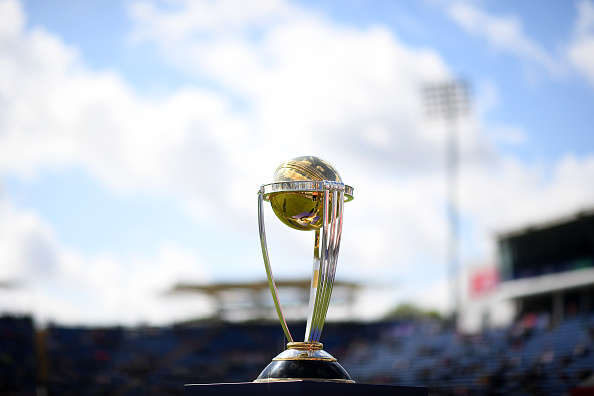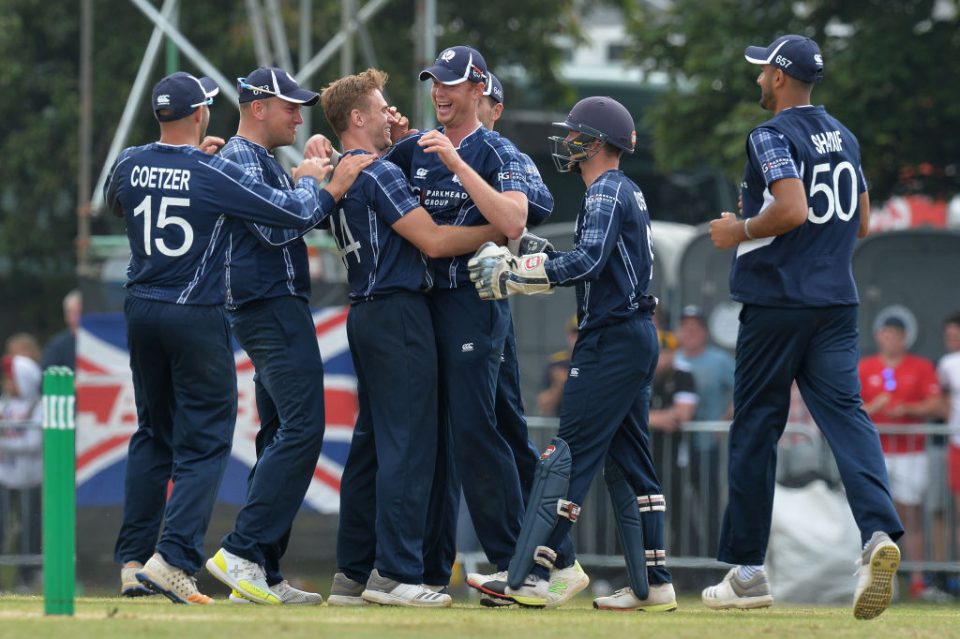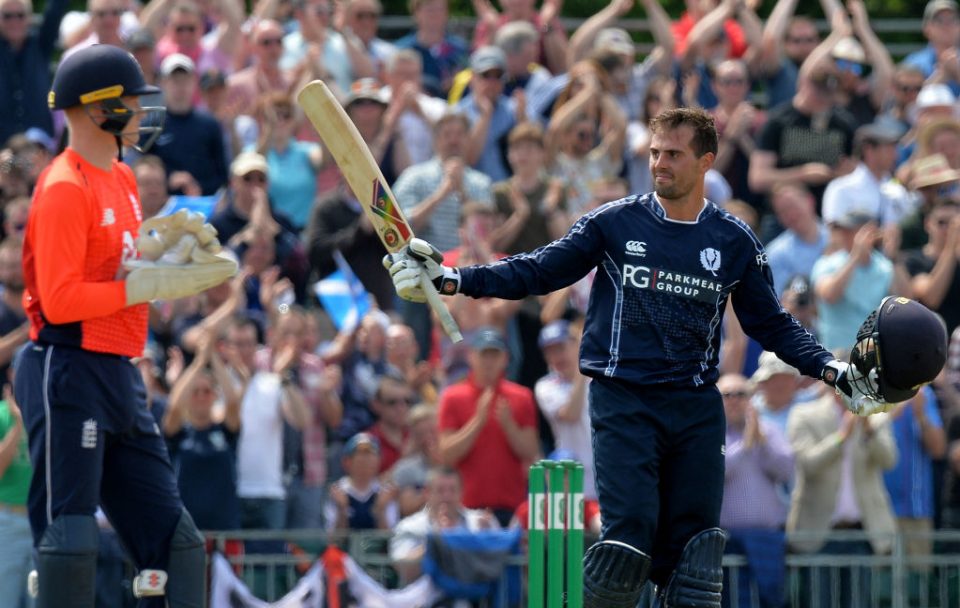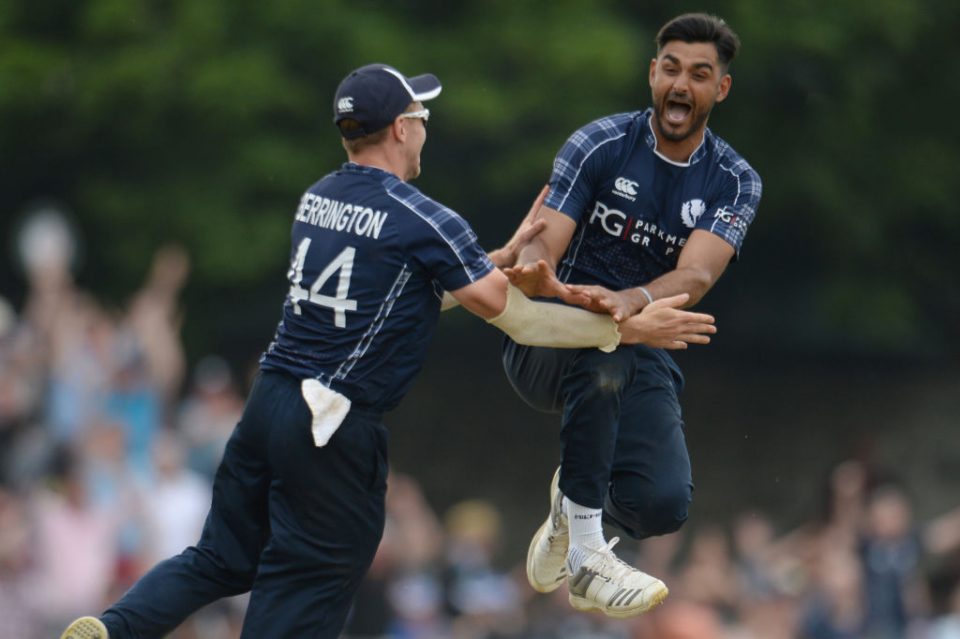Cricket World Cup: Scotland chief executive Malcom Cannon on qualifying heartbreak, the 10-team format and becoming a full member

The World Cup may be in full swing across the country right now, but not everyone involved in cricket is revelling in the occasion.
With the focus solely on the 10 teams competing, it is easy to get swept up by the occasion and forget the longstanding debate surrounding tournament’s format. Not if your name is Malcolm Cannon though.
Like many, Cricket Scotland’s chief executive has been an interested spectator of the World Cup, but unlike the majority his enjoyment has been tempered by an unshakeable sense of what could have been.
Read more: Indian fans make themselves at home at The Oval in Australia win
That’s because Scotland are one of the sides stuck on the outside looking in on the sport’s grandest yet most exclusive occasion.
Had Richie Berrington not been given out lbw to a ball heading down the legside in Harare on 21 March last year it would have been Scotland, not West Indies, playing on the biggest stage this summer.
Yet, in a cruel twist of fate, Berrington had to walk and once the rain came soon after Scotland were left five runs short of Duckworth-Lewis-Stern’s par score in the decisive qualifier.
Growing the game
Although that decision still understandably rankles in Scottish cricket, its significance stems from the overall direction the International Cricket Council (ICC) is steering the sport.
Scotland, ranked 13th in ODIs, were competing against West Indies, Afghanistan, Ireland, Holland, Nepal, Papua New Guinea, United Arab Emirates and Zimbabwe last year for the final two places in the World Cup, after the top eight ranked sides qualified automatically.

It is this 10-team format – a reduction of four from 2015 and the smallest edition since 1996 – not a dodgy lbw decision that is the main area of contention for Cannon, who draws unfavourable comparisons with other more inclusive sports.
“This year in particular, given the nature of our exit from the qualifier, I think it feels even more important that it [the format] is reviewed, that we look again at the structure,” the 57-year-old tells City A.M.
“The rationale for 10 teams is a commercial one brought about by the broadcasters, in particular the importance of India in the financial security of the sport. I get that, and I think everyone understands it.
Read more: Chris Tremlett on England’s World Cup chances
“But ultimately the ICC has to also consider strongly how best to grow the game of cricket globally. And while other sports are giving more countries the opportunity to compete in their world cups, cricket appears to be reducing those opportunities and I’m not sure that’s logical in terms of growing the game.
“So, irrespective of how Scotland might feel about our exit – the fairness, whether we should be there or not – it’s actually irrelevant. We don’t want to be those whinging Scots going on about it. Other people are doing the arguing for us.”
Stark reality
Cannon, who worked in retail for Hunter Boots, property and marketing before joining Cricket Scotland in 2015, is grateful for the funding his organisation receives from the ICC, but the stark reality of the situation bears out his points.
Had things gone differently in Harare, Scotland would be playing in their fourth World Cup and would be $1m richer from additional funding – the equivalent of doubling their annual ICC payment.

Crucially, they would also get to play a minimum of nine one-day internationals against the world’s best teams – more games than they have managed to arrange against full ICC members in the past four years.
Scotland’s biggest scalp came on 10 June last year when they smashed 371-5 before bowling out England for 365 to record a famous six-run victory in Edinburgh. And yet there would be no follow-up game in which to continue their momentum. They would have to wait 333 days, until May’s against Afghanistan, for their next ODI with a full ICC member.
Schedules are organised years in advance. The best sides are busy, which is exactly why the World Cup represents the perfect chance for nations like Scotland.

“No one is actually given the chance to get better,” Cannon explains. “We all have to negotiate matches. The difference being we don’t have the funds to attract full members to play us.
“When you host someone you pay for everything and of course we don’t have those funds. To pay travel, accommodation, match costs, transport, security – it costs a fortune to play anyone, but full members, they expect a step up. We cannot afford it, even if full members were available.”
For now there is no World Cup for Scotland. But raising awareness and fundraising never stops, while attention now turns to qualifying for the Twenty20 World Cup next year and attaining full member status.
“I think we’ve proven to the ICC full members that the sides bubbling just below the 10-team cut-off are more than capable of holding our own against the big sides,” Cannon adds. “There are no longer mismatches.”